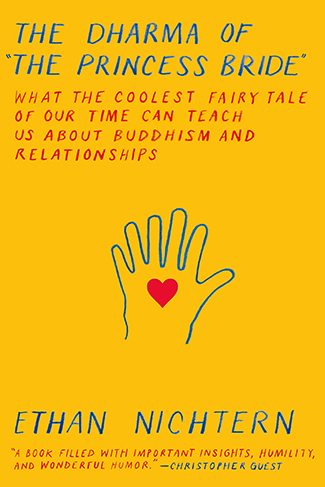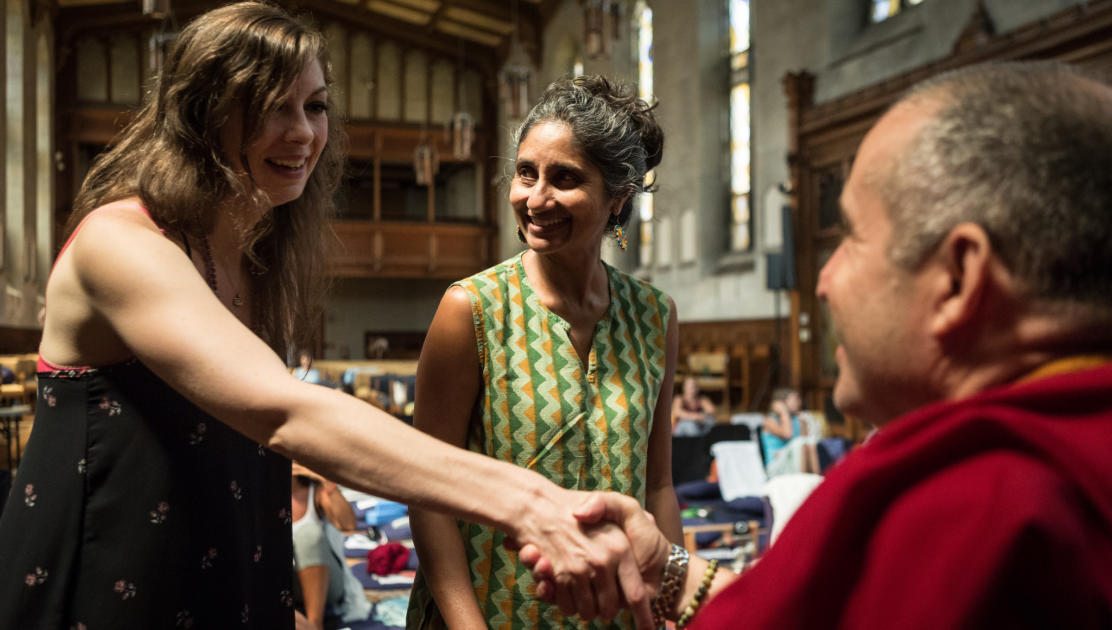Great Teachers Are Transparent
Wisdom Comes from Personal Experience, Not Ancient Lists
By Ethan NichternSome of my favorite teachers are philosophical masters. Deft, witty, and inconceivably ambidextrous with their material, they are the Dread Pirate Roberts of their given subject. Regardless of the field of study, it’s always awesome when the teacher knows history, context, and technique backward and forward. As a student, you always feel safer in the hands of a teacher who knows how to frame the topic. Yet no matter how smart a teacher may be, theoretical knowledge is not what we live for as students. What we live for, what we would cross oceans and scale cliffs to hear, are the personal stories of our teachers. Something amazing happens when a teacher leaves abstract philosophy or psychology behind for a moment and gets personal. Students lean in. They feel inspired by the sudden force of real humanity. It’s like a cool breeze of relatability flowing into a room stagnated by the stale air of concepts.
When my main teacher, Sakyong Mipham, takes a break from leading esoteric practices during an intensive Tantric meditation retreat and starts telling a story about a recent bedtime conversation with his wife or daughters, or when he shares a childhood memory of his late father, Chögyam Trungpa, a story that no one has heard before, a hush comes over the room. Suddenly, everyone feels like family, even when hundreds of people are present.
When the most famous author in my tradition, Pema Chödrön, starts discussing the anger and disappointment she felt upon discovering that her husband was cheating on her—she threw rocks at him—I feel much closer to her than when she is talking about abstract notions of suffering and emptiness. I want to know this woman. I want to know the woman who threw that rock at her husband and later became a Buddhist Jedi! Whenever I open up to my own students about my experiences, my mistakes, my clueless moments, that’s when true connection starts.
Some Western theorists have argued that total nondisclosure, a complete refusal to discuss one’s own human process, is the best way for any healer to help. In this way, patients/students have no escape from themselves, no chance to deflect from working with their own personal experiences. I see the purpose of not distracting students from a focus on their own minds, but I mostly disagree with this stance of nondisclosure, a defensive stance against the human “master’s” humanity being accidentally unmasked, their human awkwardness exposed. Sometimes, if you try too hard to be a mirror for someone else, you end up coming across like a brick wall. What we students thirst for, I believe, are guides who show us how to be ourselves by telling us how they managed to be themselves. That is true guidance. That is what a great master does.
In a very early dialogue on the teacher-student relationship, the Buddha said “a good friend, a good teacher, tells you his secrets, and he keeps yours.” What works best is transparency—not exhibitionism, but transparency. And transparency always requires some real vulnerability on the part of the teacher. There’s no other way.
 One of the largest problems confronting modern students seeking a “spiritual” path is the need to idealize teachers, to create imaginary perfection, a sterilized idol, some action figure—a hero dressed in saffron robes instead of a cape or a pirate’s mask. This idealization results in the creation of impossible standards against which to judge your own progress. Admiring and looking up to people who have traveled a rugged path and developed hard-won qualities is wonderful. But it’s counterproductive to idealize any teacher because you think they don’t deal with the same stuff you face. This form of worship renders your own experience foreign to you. I have seen it happen many times. Idealization serves only to distance you from whatever you are studying, because it interrupts your accountability to your own path. The teacher can only tell you of their path. They can’t live your life for you.
One of the largest problems confronting modern students seeking a “spiritual” path is the need to idealize teachers, to create imaginary perfection, a sterilized idol, some action figure—a hero dressed in saffron robes instead of a cape or a pirate’s mask. This idealization results in the creation of impossible standards against which to judge your own progress. Admiring and looking up to people who have traveled a rugged path and developed hard-won qualities is wonderful. But it’s counterproductive to idealize any teacher because you think they don’t deal with the same stuff you face. This form of worship renders your own experience foreign to you. I have seen it happen many times. Idealization serves only to distance you from whatever you are studying, because it interrupts your accountability to your own path. The teacher can only tell you of their path. They can’t live your life for you.
Sometimes we choose impossible idols (rather than flawed people) to look up to because we actually want to remain distant from the path. Waking up is hard work, and if it were possible, who wouldn’t want the teacher to do that work for us? If we hold the teacher at a distance through idealization, maybe we can get away from our own trials and tribulations, our own shameful secrets. Waking up requires humanizing the people we look up to, forming a bridge between their wise experience and our own insights waiting to be discovered. Without that human connection, without knowledge of the teacher’s own process, anything we learn from them will be like obsessing over a Google Street Map for the planet Jupiter: a detailed description of a place you can’t ever visit. This distance doesn’t help anyone. What helps are human examples. To connect with teachers, we need to be able to ask the questions we really want to ask, not vague, polite ones that elicit more platitudes. Compassion is no platitude. Compassion is just a way to work with a big mess, because compassion flourishes when you feel inclusive of reality, and as long as people exist, reality will be a big mess.
Here are just a few of the questions I have always wanted to ask spiritual teachers:
- What is your biggest emotional obstacle?
- Who in your family annoys you the most?
- Who did you vote for?
- If you didn’t vote, why the hell not?
- Who’s your favorite artist?
- Have you ever butt-dialed someone?
- Have you ever drunk-dialed someone?
- Have you ever lied to a friend?
- Have you ever felt haunted by a mistake you have yet to fully process?
- How do you deal with those moments when you absolutely hate your partner?
- Or . . . your parents?
- Your teacher?
- Or those moments when you hate your children?
- Tell me, wise teacher, tell me of all the self-destructive mistakes you’ve made, all the obstacles you’ve faced, all your “clueless” moments on this journey—what did you learn?
When it comes to relationships, as both a teacher and a student, I feel the need to answer these questions myself.
My heroes are imperfect. Yes, they have wisdom, they know their subject thoroughly, but the best teachers are always still learning, and they help us glimpse the invisible bridge between confusion and wisdom. Confusion and wisdom are never completely separate experiences. Rather, they are merely different vantage points of the same human experience. We experience life from both perspectives all the time.
Teachers keep coming back, with deeply good intentions, to their own path, and by their persistence, they give us a glimmer of hope that waking up is something we, too, can do.
Ethan Nichtern is a senior teacher in the Shambhala Buddhist tradition and the author of The Road Home: A Contemporary Exploration of the Buddhist Path, One City: A Declaration of Interdependence, and The Dharma of “The Princess Bride”: What the Coolest Fairy Tale of Our Time Can Teach Us about Buddhism and Relationships, from which this article is excerpted with permission by North Point Press, a division of Farrar, Straus and Giroux. Copyright ©2017 by Ethan Nichtern. All rights reserved.
Join us at JCC Manhattan in New York City on November 20 for “Everyday Love: A Conversation on Relationships with Sharon Salzberg and Ethan Nichtern.“
